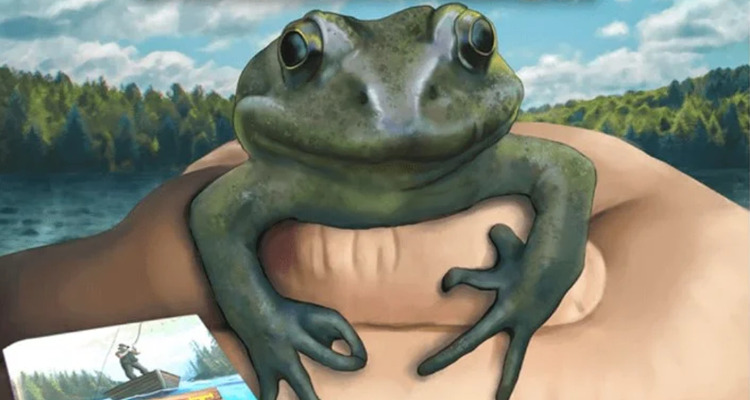That is a very accurate representation of slavery, which is a diverse institution that has taken many forms across the world. There were societies where slaves could own property and do business on the side. It's also no surprise that a master would treat a skilled slave well. Slavery doesn't necessary equal abject misery and horror, and sometimes selling yourself as a slave (or becoming a serf, etc.) would even have been a preferable alternative to starving to death. So Anakin is a slave in a very real sense in that he does not have the freedom to choose where he lives or works, and his work is ultimately owned by his master.When the prequels came around, Anakin was a slave, yes, but let's face it--barely. He wasn't chained up or beaten (at least not onscreen), he and his mother had their own fairly large house, he was able to make his own podracer and droid. He was a slave in name only, there to help pad out the film a bit with a cool podracing scene so that Qui-Gon couldn't just grab him and run.
You are using an out of date browser. It may not display this or other websites correctly.
You should upgrade or use an alternative browser.
You should upgrade or use an alternative browser.
What We Lose When We Eliminate Controversial Content
- Thread starter Reynard
- Start date
- Status
- Not open for further replies.
Thanks for providing a concrete example. I don't think this is as clear-cut as you indicate in your summary.Ah, I was wondering when we'd get to the "this doesn't really happen" portion of the back-and-forth. Sure, how about The Gaming Goat.
This was a company which put out a deckbuilding game (i.e. non-collectible card game) about bass fishing on Kickstarter a while back. Sounds as innocuous as it gets, right?
Except, get this: they had the following image on their KS page:

Looks about as innocuous as it gets, right? Except you'll notice that two of the frog's toes are touching, which some people took to mean it was making the "okay" gesture...i.e. a white power sign.
Yes, some people actually thought that this illustration was coded language.
Naturally, The Gaming Goat thought that this was ridiculous, and so couldn't help but treat the subject with irreverence, which is the correct response when such incredibly bad-faith claims are raised! They made a joking reference to the issue:

And pointed out that their illustrator was working off of a real-world example:
https://i.*****.com/Smqgs9Oh.jpg
...and left it at that, at which point everyone had a laugh about the whole thing and moved on.
Oh, no, wait, that's not what happened. Instead, incensed at how their "concerns" weren't being taken seriously, the outraged minority moved to absolutely destroy the people who hadn't treated their upset as Very Serious Business:
The end result was that The Gaming Goat was kicked out of Gen Con 2021, losing (according to them) over $40,000 that wasn't reimbursed:
Now, I suppose Gen Con might have had for some other, undisclosed reason for ejecting them, but I haven't heard of anything being proposed.
All of which is to say, the issues raised about the outraged mob are not theoretical. It has caused real harm to real people, far more so than an illustration of a frog with its toes touching could possibly have inflicted on anyone.
Please note that the article you linked to itself contains links documenting a history of troublesome behavior, aside from the frog art. From what I see here, The Gaming Goat (business) wasn't kicked out of the convention, only the CEO. Do you have info to the contrary?
Last edited:
Faolyn
(she/her)
One: If slavery is something that's active in the game, the GM can pick something else for the PCs to fight against.It's been pointed out to you before that world-building and game-play (and thus, verisimilitude in world-building versus verisimilitude in game-play) are two different contexts. You can say that a plague is ravaging the land, and note how that's shaped society, without having the PCs make multiple saves against a disease every single day, and that's not contradictory or hypocritical in any regard.
Two: If slavery is just a background element in the game, the GM can pick a different background element or verisimilitude. For instance: the soldiers in the king's army have PTSD from the last dragon attack.
Alzrius
The EN World kitten
I disagree with regard to it being clear-cut; the articles mentioned make it very clear that TGG was being lambasted specifically over the frog illustration. Of the other issues listed, most tend to be in reaction to that same controversy, or are for the CEO's unpopular take on contemporary political issues (with which I disagree, though I'll note again that those aren't cited as being reasons for the entire company being villainized).Thanks for providing a concrete example. I don't think this is as clear-cut as you indicate in your summary.
Please note that the article you linked to itself contains links documenting a history of troublesome behavior, aside from the frog art. From what I see here, The Gaming Goat (business) wasn't kicked out of the convention, only the CEO. Do you have info to the contrary?
Insofar as Gen Con goes, the CEO's statement about losing $40,000 suggests that what happened affected more than just himself, but I'm not finding much else about the subject.
Alzrius
The EN World kitten
Leaving aside that the PCs are the ones who decide what they fight against (I mean, they'll obviously need to do something if the GM has enemies overtly attacking them, but otherwise the PCs get to pick and choose what their characters do), I'm honestly not sure what you mean here.One: If slavery is something that's active in the game, the GM can pick something else for the PCs to fight against.
I'm still not sure what you're talking about, with regard to the difference between verisimilitude in world-building and verisimilitude as being something to balance in the context of game-play.Two: If slavery is just a background element in the game, the GM can pick a different background element or verisimilitude. For instance: the soldiers in the king's army have PTSD from the last dragon attack.
Faolyn
(she/her)
You're misunderstanding what I wrote.I never said anything about fun plot points. Please see my previous posts.
If you actually care about verisimilitude, then you have to care about other forms of verisimilitude. To move away from medical conditions, do you include rampant sexism and homophobia in your games? Do you include discrimination based on country of origin? Do you have different sects for your fantasy religions that war against each other, where the Reformed Church of Moradin battles against the Orthodox Church Moradin?
Or is this going to be a thing where you say that you don't have to have "everything" be realistic? Because if that's the case, then slavery becomes a fun plot point--just a hook for the PCs to get into the game and a reason for them to fight the bad guys.
Faolyn
(she/her)
Many, probably most, games that take place in the real world don't include slavery in it, even if the real world does have it.And yet games set in the modern world don't necessarily confront modern day slavery directly despite its presence in the setting.
Faolyn
(she/her)
But this difference is also a major reason why Star Wars is still considered family-friendly.That is a very accurate representation of slavery, which is a diverse institution that has taken many forms across the world. There were societies where slaves could own property and do business on the side. It's also no surprise that a master would treat a skilled slave well. Slavery doesn't necessary equal abject misery and horror, and sometimes selling yourself as a slave (or becoming a serf, etc.) would even have been a preferable alternative to starving to death. So Anakin is a slave in a very real sense in that he does not have the freedom to choose where he lives or works, and his work is ultimately owned by his master.
Most RPGs don't have this sort of slavery, but instead go for the violent version.
Slavery was usually lifelong and carried over to children born to slaves, and a very similar situation to the sourcing of slaves for the transatlantic slave trade went on for centuries in East Europe, where various tribes and polities raided each other for slaves and traded them in massive numbers mainly to Mediterranean powers, like the various Muslim empires and certain Italian city-states. Point two and four still stand though.1) it was lifelong and generational.
2) it was based on the social/legal construct of “race”, and as such, even people within American society who did not appear to be at risk were still at risk. The Library of Congress has a collection of “Escaped Slave” ads that describe people we would describe as white, but who were slave-born or presumed to have been, and could not prove otherwise. (Yes, the burden was on the slave to prove “whiteness”- which would void the legality of enslavement- not the person claiming to be their owner.)
3) the primary source of slaves was not prisoners war between neighboring peoples but an ongoing commercial enterprise.
4) blacks were not considered fully human by a large percentage of those in the trade or benefitting from it, which was one key justification for slavery being acceptable. This meant that even free people of color within American society faced lifelong risks & roadblocks similar to those who were enslaved. And the concept we are lesser beings has rippled through time, still affecting people living today.
Alzrius
The EN World kitten
No, you don't.If you actually care about verisimilitude, then you have to care about other forms of verisimilitude.
This has been one of the main points raised against simulationism as a play-style, and it makes me tear my hair out every time I hear it. "Simulationism means that you're trying to simulate literally all aspects of the real world, all the time." That's not correct. It's never been correct.
There are contexts here; modes of engagement with the game. How you practice simulationism differs in each one. It does not undercut simulationism to make compromises with regard to various aspects of the game in order to maintain playability.
- Status
- Not open for further replies.
Similar Threads
- Replies
- 304
- Views
- 19K
- Replies
- 343
- Views
- 86K
Recent & Upcoming Releases
-
June 18 2026 -
October 1 2026



